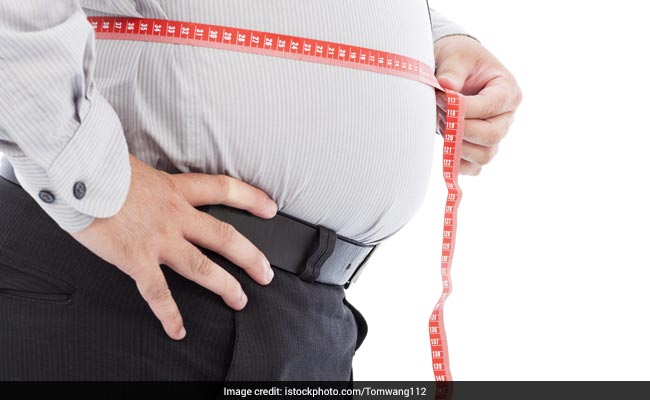The real difference between bloating and fat, what should you know?
The real difference between bloating and fat, what should you know?
Blog Article
Comprehending the Difference In Between Bloating and Fat: a Vital Overview for Digestive Health And Wellness
Recognizing the distinction between bloating and excess body fat is critical for anybody worried about digestive system health. While bloating presents as a short-term and commonly uncomfortable condition, normally connected to nutritional routines or digestion disturbances, body fat represents a much more permanent change in one's figure. This differentiation is not merely academic; it lugs substantial ramifications for just how people approach signs and therapy. As we explore the subtleties of these 2 sensations, the relevance of recognizing their particular causes and monitoring techniques ends up being progressively apparent. What are the practical actions one can take to resolve these problems effectively?
Defining Bloating and Fat
Bloating and fat are 2 unique physical sensations that can dramatically influence an individual's convenience and body image. Bloating is generally a temporary event and can rise and fall throughout the day, often resolving with way of living changes or medical treatments.
On the other hand, body fat is a much more permanent and secure component of human physiology, largely functioning as an energy book and playing vital functions in hormone policy and insulation. Body fat is categorized right into two kinds: subcutaneous fat, which exists just under the skin, and natural fat, which surrounds interior organs. While excess body fat can cause wellness issues, it is necessary for general bodily functions.

Reasons of Bloating

Furthermore, food intolerances, such as lactose or gluten intolerance, can lead to bloating when the body has a hard time to process particular compounds - bloating vs fat. Consuming as well swiftly or eating carbonated drinks can also intensify the problem, as these practices present excess air right into the digestion system
Lifestyle variables, including stress and absence of exercise, can even more add to bloating by impacting gut mobility. Particular medical problems, such as cranky digestive tract disorder (IBS) or intestinal obstruction, might also lead to chronic bloating. Recognizing these reasons is important for successfully taking care of and minimizing bloating, permitting people to make enlightened nutritional and way of life options that sustain their gastrointestinal health.
Symptoms of Bloating vs. Fat
Differentiating between the signs and symptoms of bloating and excess fat is vital for comprehending one's body and attending to pain efficiently. Bloating generally presents as a feeling of volume or stress in the abdominal area, usually come with by visible distension.
While it may contribute to a feeling of thickness, it usually does not produce the severe pain linked with bloating. Rather, excess fat often tends to build up slowly, leading to a change in body shape and size over time.

Recognizing these differences is crucial. While bloating is often short-term and connected to nutritional variables or gastrointestinal issues, excess fat indicates an extra chronic problem requiring way of life modifications. Understanding these symptoms encourages individuals to look for appropriate services customized to their details concerns regarding digestive health and body composition.
Managing Bloating
Reliable monitoring of bloating needs a diverse technique that addresses both nutritional options and lifestyle behaviors. Initially, it is vital to identify and remove certain foods that may trigger bloating, such as those high in fiber, read this post here gluten, lactose, or specific fermentable carbs (FODMAPs) Keeping a food journal can aid identify these triggers and overview adjustments.
Including smaller, extra frequent meals instead than large ones can additionally decrease bloating, as it alleviates the digestive process (fat and bloating). Remaining well-hydrated is essential, as adequate fluid intake help food digestion and aids stop irregular bowel movements, which can add to bloating
In addition, engaging in routine exercise advertises gastrointestinal motility and reduces bloating. Simple exercises, such as strolling or yoga exercise, can effectively reduce discomfort. Mindful eating methods, such as consuming slowly and eating food extensively, may better improve food digestion and restriction air ingesting.
When to Look For Aid
Acknowledging when to look for medical aid for bloating is critical, as relentless or serious symptoms might show an underlying health and wellness issue. If bloating is accompanied by added worrying signs such as considerable abdominal pain, unusual fat burning, rectal bleeding, or continual nausea and vomiting, it is essential to seek advice from a health navigate here care expert. These indications might recommend problems such as short-tempered bowel syndrome, stomach obstruction, or also much more significant problems like cancer cells.
Additionally, if bloating continues regardless of nutritional modifications or over the counter solutions, it necessitates additional examination. People with a history of food poisonings must be specifically watchful, as their danger for problems might be higher. Furthermore, if bloating takes place following the consumption of specific foods, it may show food intolerances or allergies that necessitate dietary changes or testing.
Conclusion
In recap, comparing bloating and excess body fat is vital for digestive health and overall health. Bloating, a short-term condition commonly connected to continue reading this dietary factors and digestion problems, contrasts dramatically with the steady build-up of body fat. Acknowledging the signs and symptoms and underlying sources of each can promote suitable monitoring approaches. People experiencing consistent or serious signs and symptoms need to seek specialist support to address prospective health and wellness concerns successfully. Comprehending these distinctions is necessary for educated decision-making relating to health and wellness and way of life.
Report this page